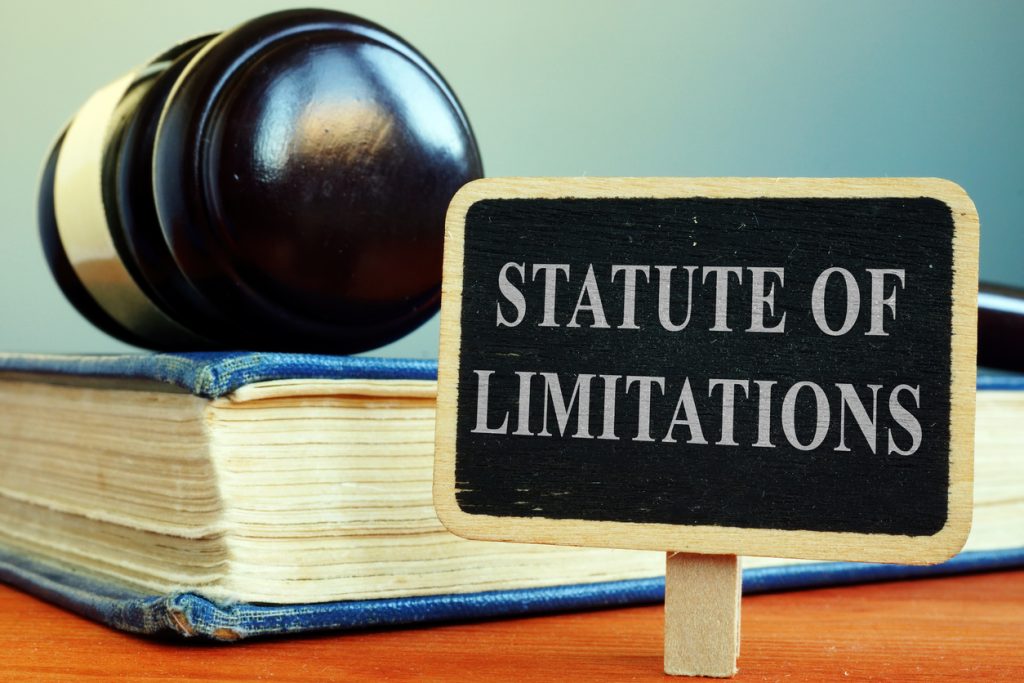Car accidents can result in severe physical, emotional, and financial tolls on those involved. When someone is injured or suffers damages due to another's negligence, he or she is typically able to pursue compensation. One crucial aspect that every individual needs to be aware of is the statute of limitations, which dictates the time frame within which they can file a claim. Understanding the statute of limitations for car accident claims can be vital in ensuring that victims are not barred from receiving compensation for their injuries.
What Is a Statute of Limitations?
The statute of limitations is a law that sets the maximum time allowed for someone to initiate legal proceedings after an event has occurred. For car accident claims, the statute of limitations determines how long you have to file a lawsuit against the person or entity responsible for the accident. Once this period expires, you lose the legal right to pursue compensation through the courts.
In most jurisdictions, the statute of limitations for personal injury claims, including those resulting from car accidents, is clearly defined. These time limits vary by state, and specific circumstances surrounding the accident can sometimes influence the time frame. Understanding the exact statute of limitations in your area is essential, as it can make the difference between receiving compensation or losing your right to sue.
How Long Do You Have to File a Car Accident Claim?
The statute of limitations for car accident claims generally falls within a range of two to four years, depending on where the accident occurred. In some states, you may have as little as two years from the date of the accident to file a claim, while others may extend this period up to four years. Each state sets its own deadline, and it’s crucial to be aware of these time restrictions to avoid losing your legal rights.
Why Is the Statute of Limitations Important?
The statute of limitations plays an essential role in preserving the integrity of evidence. Over time, memories fade, and physical evidence becomes less reliable. As time passes, witnesses may become unavailable or their recollection of events may diminish. The statute of limitations ensures that claims are brought in a timely manner, allowing the legal process to proceed with the most accurate and up-to-date information.
These time limits serve as a method to protect defendants from being subjected to indefinite legal threats. If individuals could file claims many years after an accident, it could be challenging for those accused to mount a proper defense, particularly if evidence has been lost or damaged.
Special Considerations for Car Accident Claims
Discovery Rule
In some instances, the statute of limitations may not begin immediately after the car accident. Certain circumstances, such as when injuries are not immediately apparent, could result in the "discovery rule" being applied. This rule states that the statute of limitations may be extended until the injury or damages are discovered or reasonably should have been discovered.
For example, if someone sustains internal injuries in a car accident that are not immediately noticeable, the clock for the statute of limitations might not start ticking until they are diagnosed. In these situations, the discovery rule allows victims to pursue their claims even if they were unaware of their injuries at the time of the accident.
Wrongful Death Claims
In cases where a fatality occurs due to a car accident, the surviving family members may wish to file a wrongful death lawsuit. The statute of limitations for wrongful death claims can differ from the statute of limitations for personal injury claims.
In many jurisdictions, the statute of limitations for wrongful death claims is shorter, typically ranging between one and three years from the date of death. It is crucial for family members to act swiftly, as delays in filing a wrongful death claim could prevent them from obtaining justice and compensation for their loss.
Government Entities and Car Accident Claims
When the defendant in a car accident claim is a government entity, special rules often apply. Many states require that a notice of claim be filed within a much shorter period, sometimes as little as 30 to 180 days after the accident. Failure to meet these deadlines can result in the dismissal of the case, regardless of the merits of the claim.
If you were involved in a car accident with a government vehicle, or if a government agency is responsible for the road conditions that led to the accident, it is critical to contact a car accident attorney as soon as possible to ensure that all required notifications and paperwork are submitted in time.
Tolling the Statute of Limitations
There are certain circumstances in which the statute of limitations can be “tolled,” or paused. For example, if the person responsible for the accident is a minor or mentally incompetent, the statute of limitations may be extended until the individual reaches the age of majority or regains their mental capacity. Similarly, if the defendant leaves the state or is otherwise unavailable for legal proceedings, the statute of limitations may be paused until the defendant returns.
These exceptions are not automatically applied, and it is essential to consult a car accident attorney to determine whether tolling may apply to your case.
What Happens If You Miss the Statute of Limitations?
If you fail to file your car accident claim within the statute of limitations, you generally lose your right to sue for damages. This means that even if you have a valid claim and strong evidence, the court may dismiss your case if it is filed after the deadline has passed.
While there may be some rare exceptions, the general rule is that once the statute of limitations has expired, you cannot seek compensation through the courts. This makes it vital for victims of car accidents to act quickly and contact a car accident attorney as soon as possible.
How a Car Accident Attorney Can Help
The process of filing a car accident claim can be complicated, and missing the statute of limitations can be detrimental to your case. A car accident attorney at Shindler & Shindler can guide you through the legal process, helping you understand the time limits that apply to your specific case. He or she can assist you with gathering evidence, identifying defendants, and filing your claim within the appropriate time frame.
By consulting with a skilled car accident attorney early in the process, you ensure that your legal rights are protected and that your chances of receiving fair compensation are maximized.
Taking Action: Don’t Let the Statute of Limitations Stop You from Getting the Compensation
The statute of limitations is a crucial element of the car accident claims process. By understanding the time frame within which you must act, you can ensure that you have the opportunity to seek justice and compensation for your injuries. If you’ve been involved in a car accident, it’s essential to consult with an experienced attorney as soon as possible to avoid missing deadlines that could impact your case.





















